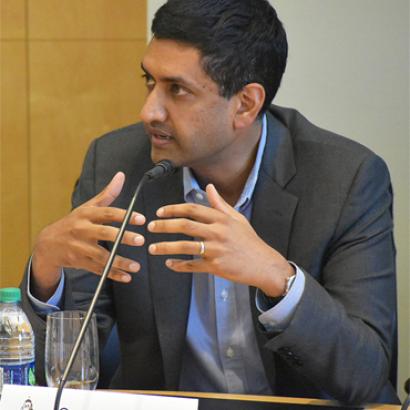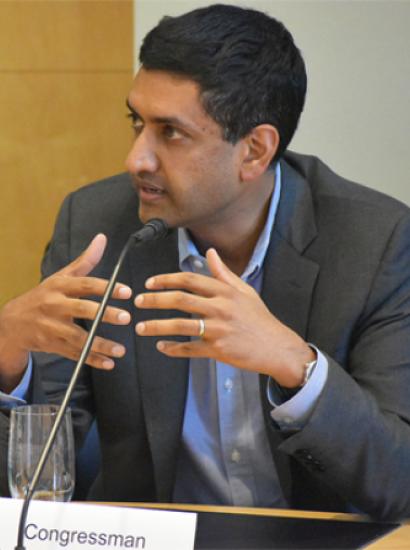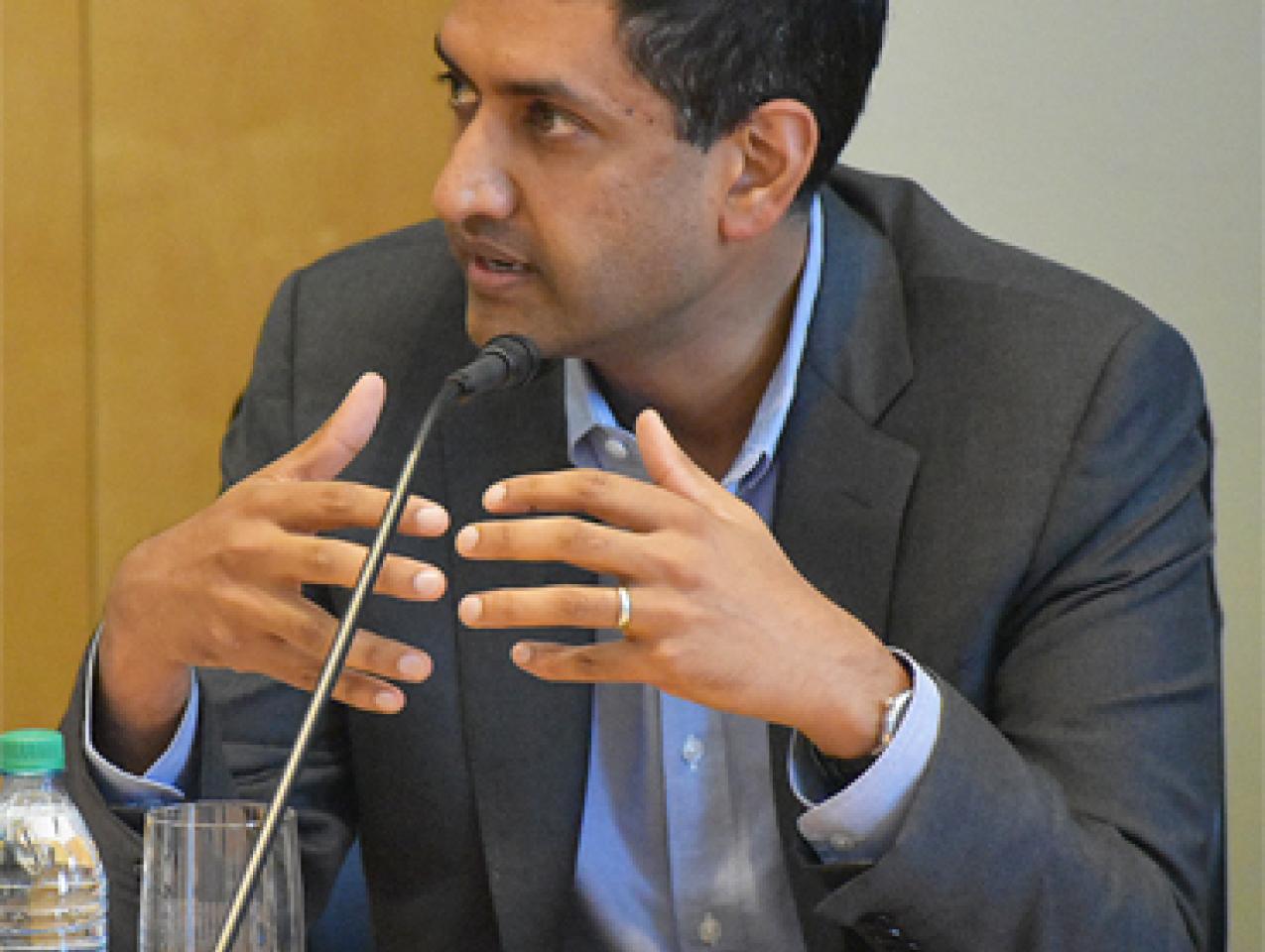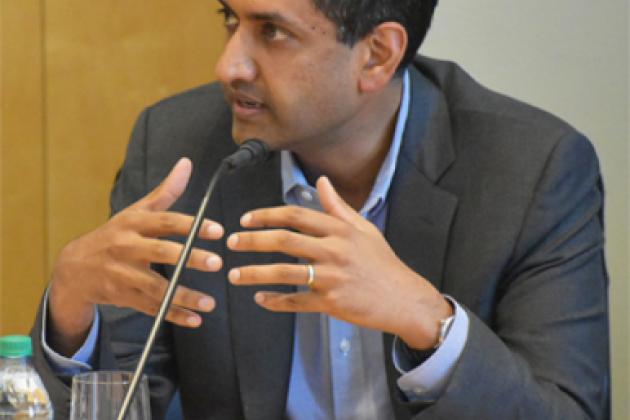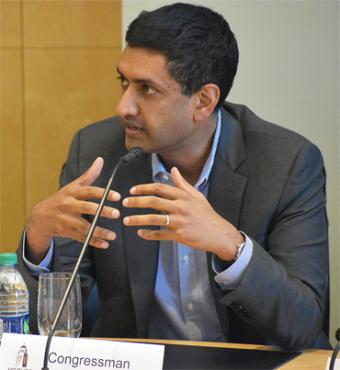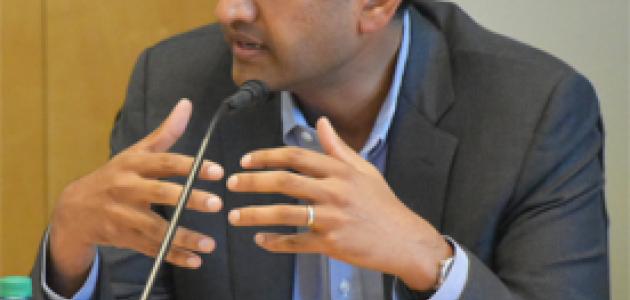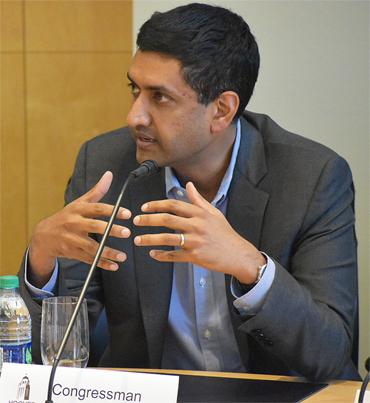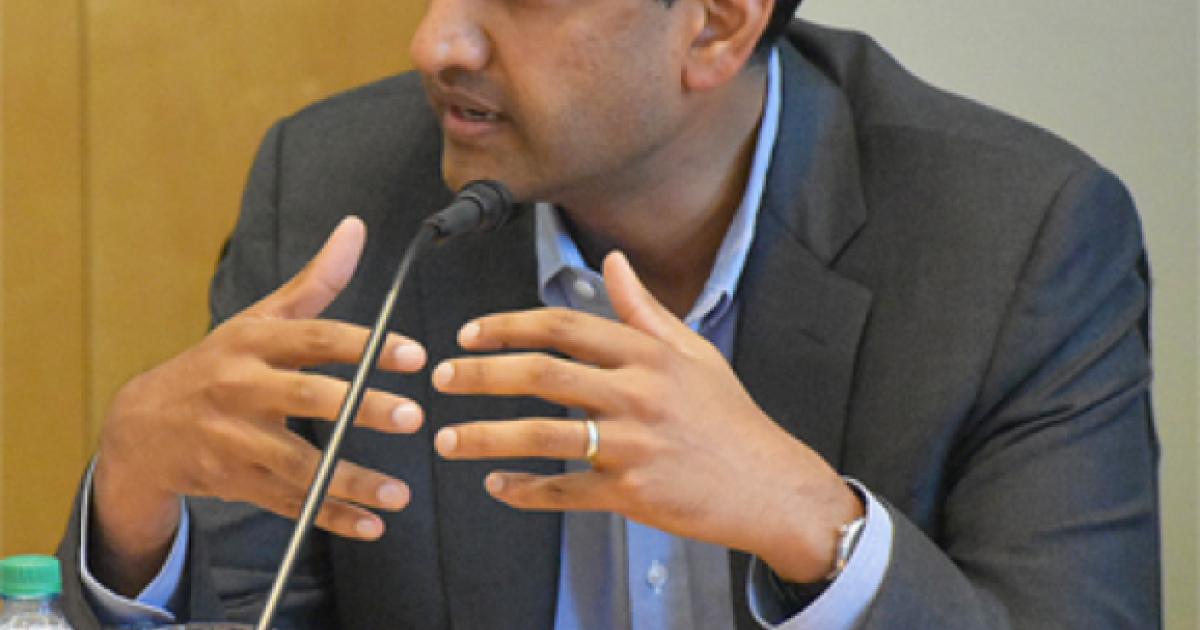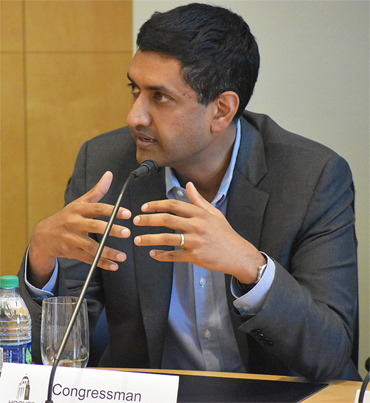
On August 21, 2017, the Hoover Institution hosted Congressman Ro Khanna, representing California’s seventeenth congressional district, to participate in a Hoover Leadership Forum.
Hoover’s Leadership Forum is one of several unique face-to-face programs that connect Hoover fellows with individuals and groups that make or influence public policy. The program includes leaders from government, business, and international communities, bringing them to Hoover for in-depth roundtable discussions with Hoover fellows.
Khanna follows several other policy makers that have participated in 2017 Hoover Leadership Forums, including Office of Management and Budget director Mick Mulvaney, US senator Ben Sasse, and Wisconsin congressman Mike Gallagher.
Before his election to the House in 2016, Khanna taught economics at Stanford and law at Santa Clara University, practiced intellectual property law, and served as deputy assistant secretary in the Department of Commerce under President Obama. His district, located at the epicenter of Silicon Valley, includes major tech centers such as Sunnyvale and Cupertino, as well as countless industry giants including Apple and Tesla.
Earning widespread endorsement from tech-industry and political leaders, Khanna’s congressional campaign put the twenty-first-century economy front and center. Extending that vision beyond established technology companies, Khanna emphasized attracting manufacturing jobs, supporting entrepreneurship and small businesses, and helping workers prosper through training and education.
During his visit to Hoover, Khanna looked to fellows for ideas about how policy makers can foster continued broad economic opportunity, despite the dramatic changes typified in his district and declining geographic mobility across the nation.
More than twenty Hoover fellows participated in the forum, representing a wide range of perspectives and areas of expertise. Senior Fellow John Cochrane noted that economic changes that destroy jobs also create them. Self-driving trucks that make drivers obsolete, he explained as an example, may also create new jobs by bringing distribution centers to remote regions.
Robert Hall, the Robert and Carole McNeil Senior Fellow at Hoover and Professor of Economics at Stanford, pointed to a shortage of qualified workers as a cause of downward pressure on labor’s productivity and total share of income. He referenced Paul and Jean Hanna Senior Fellow in Education Eric Hanushek’s work on teacher compensation and K–12 reform as an important guide to strengthening human capital.
Looking at political questions, Milbank Family Senior Fellow Niall Ferguson predicted that, at least in the short run, the frictions of a changing economy will create electoral backlash. Thomas W. and Susan B. Ford Distinguished Fellow George P. Shultz noted the human element of governance and the importance of building relationships, reaching across the aisle, and seeking broad input in Congress.
Numerous other fellows offered their perspectives, asked questions, and listened carefully to Khanna’s responses. The forum highlighted both the diversity of opinion and candid discussions that characterize Hoover conferences.
As technological development and economic change come home to cities and towns across the United States, policy makers on both sides of the aisle are likely to continue grappling with how to find common American purpose in the twenty-first century. By bringing them and other leaders together for open dialogue with fellows, Hoover can continue to help provide sound policy insights to guide their work.







